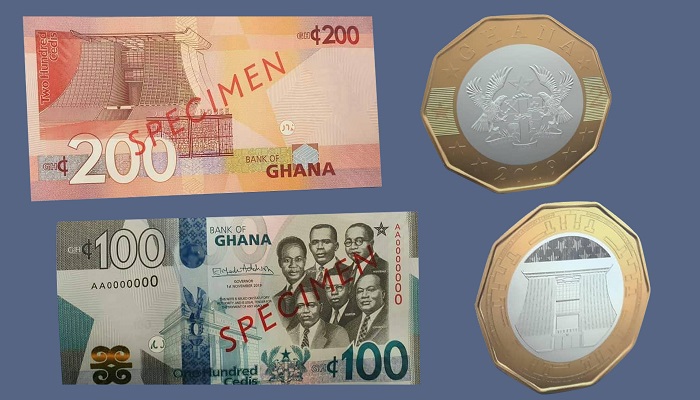Cedi can’t be printed in Ghana for now – BoG
- Posted on
- Comment

The Head of the Currency Processing Operations at the Bank of Ghana, Dominic Owusu, has disclosed that Bank of Ghana has no intention of setting up a printing facility to print Cedis anytime soon.
“We don’t have the capacity and it is a very expensive venture,” he stated.
He said the Bank of Ghana will “continue to leave that capital intensive, highly technologically advanced and sophisticated job to the experts for now”.
Mr. Owusu’s comments follow growing concerns from the public for Bank of Ghana to consider printing the Cedi in the country.
The concerns were renewed after the introduction of the new higher denominations of GH¢100 and GH¢200 notes and GH¢2 coins.
Speaking on the sidelines of a sensitization meeting with financial institutions in the Western Region, Mr. Dominic Owusu insisted that printing of banknotes is very complicated.
“Printing of banknotes is not just printing on a piece of paper. It goes much further than that. First of all, banknotes are made up of hundred percent cotton. In fact, banknotes are made from Cotton like the jeans we wear. The only difference is that the lines in the banknotes are shorter and that of the jeans longer… That is why banknotes do not tear up like ordinary paper when put in washing machines mistakenly.
Mr Owusu continued: “The banknotes start from getting the cotton material and working on them… It takes close to about three months to get the paper ready with security features introduced in them.”
He further said after the paper is ready there are about three to four stages that must be followed religiously before other security features are introduced again.
“We have the lithography or offset and other processes which apply ink to the paper and make it tactile. Here again there is an application of other security elements. So, it takes close to about six to eight months to get banknotes ready when you make an order.
“Another critical issue with printing of banknotes is the constant upgrade of the security features on them. Due to how technologically savvy counterfeiters have become you must do a regular update of the banknotes. Once you introduce a security feature, the counterfeiters try to get it. Therefore, the printers also try to stay ahead of them always by upgrading their machines. What this means is you will need a budget to keep upgrading and introducing new machines with new security features. So, if you buy these sophisticated printer machines, you should be ready for some of these important considerations. So, you can imagine what goes into it. You simply cannot keep pace and hence for now, it is better to leave it to the experts.
“So, you need a lot of experience to be able to print banknotes and also make it difficult if not impossible to produce counterfeits and that is very important. Because of this and other stringent measures needed, there are only a few private printers which are internationally accredited by a number of certifications who are authorized or who most countries go to print.”
Dominic Owusu said that the Bank of Ghana will ensure that it is working to ensure trust and confidence in the Ghana Cedi notes “but has no intention of printing banknotes in Ghana”.
By Eric Yaw Adjei










 (Selorm) |
(Selorm) |  (Nana Kwesi)
(Nana Kwesi)